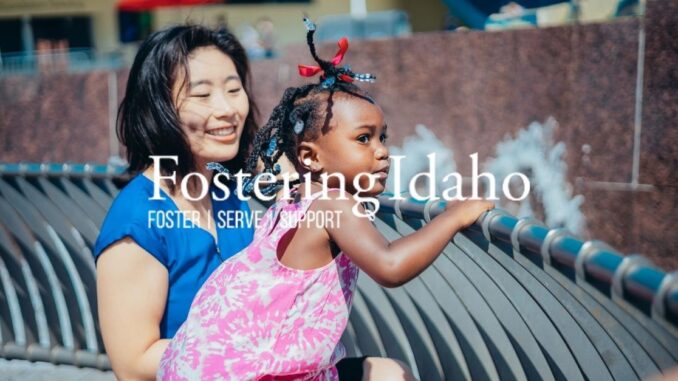
BY SANDERS KENNEDY
On Tuesday, Idaho’s Department of Health and Welfare (DHW) announced it will stop using hotels and short-term rentals to temporarily house foster children with complex needs, citing a decline in incoming foster youth. Instead, children and teens entering the foster care system will be placed in a new care center staffed by professionals trained to provide comprehensive support. The announcement follows the signing of an executive order by Idaho’s governor aimed at removing barriers making the process faster and more accessible for prospective foster parents. However, some critics are raising concerns about the potential risks involved in the expedited process.
“The number of children coming into foster care rose in 2020 and 2021, and the department established the temporary housing program to keep kids safe,” said DHW Youth Safety and Permanency Administrator Jean Fisher. “The department’s goal was always to phase this program out as soon as possible.”
The program primarily housed newly enrolled foster children with health conditions, developmental disabilities, and teens, who are more challenging to place in foster care than their younger counter parts.
In a 2021 interview with Idaho CBS 2 News, Cameron Gilliland, the former administrator of the Division of Family and Community Services, acknowledged using an office building to temporarily house the growing number of foster youths.
“We didn’t have a place for them, so sometimes we’ve had to keep them in the office overnight,” said Gilliland. “Other times we’ve gone to hotels and short-term rentals. Most of them are there in that situation for 10 or less days. Although we have some that have been a little longer.”
In May, the Health and Welfare department opened a new 16-bed assessment center, the “Payette Assessment and Care Center” (PACC), in Treasure Valley, Idaho, which instantly reduced the reliance on temporary housing. The center was built over the course of six months with the help from state funding and dozens of donations from local organizations
“One of the important things that we find is a lot of kids that come to us have never experienced the ability to have their own room,” said Stacy Corbett, program manager for child welfare. “The rooms are big enough to fit two beds so siblings can remain together.”
The focus on maintaining sibling connections and offering a sense of stability is crucial as many of these children come from environments of trauma. These efforts are aligned with larger state initiatives aimed at supporting foster families and children in the child welfare system.
In June, Idaho Governor Brad Little signed Executive Order 2024-05, the “Promoting Families and Protecting Children Act,” and announced additional steps his administration is taking to remove barriers for foster families and better protect youth in the child welfare system.
“There is no category of children more in need of protection than those in the child welfare system. Through no fault of their own, children in foster care in Idaho face enormous challenges. Governor Little said in a statement. “They need our support, and so do the foster families who step up to care for them, love them, and provide them safety. The Promoting Families and Protecting Children Act will accelerate the improvements we know we need to address in our child welfare system in Idaho.”
One barrier that has been removed to “accelerate” the placement of children in foster homes was making a pre-service trauma informed training course optional for caregivers. which was once mandatory, according to DHW. A report by the National Library of Medicine stated that, approximately 90% of children in foster care have experienced trauma, whether it be from abuse, neglect, or other adverse situations. Foster parents are still required to attend the ‘Reasonable and Prudent Parent Standard’ and ‘Fostering Idaho Resources & Skills Training’ course, which teaches them to “make careful and sensible parental decisions,” according to DHW.
“This is terrifying,” said Barbra Decker, an Idaho native, who adopted a child that she fostered in 2019. “Trauma informed care is the core of keeping kiddos from jumping placement to placement. I understand the need for more foster parents, but this is not the way to go.”
While Decker finds this ‘terrifying,’ she remains hopeful that adults who are considering fostering will make the right choice and complete the pre-service trauma-informed training course.
“I trust that they (adults) will take the time to have the proper training to learn how to care for these kiddos,” said Decker. “Bless their hearts.”
